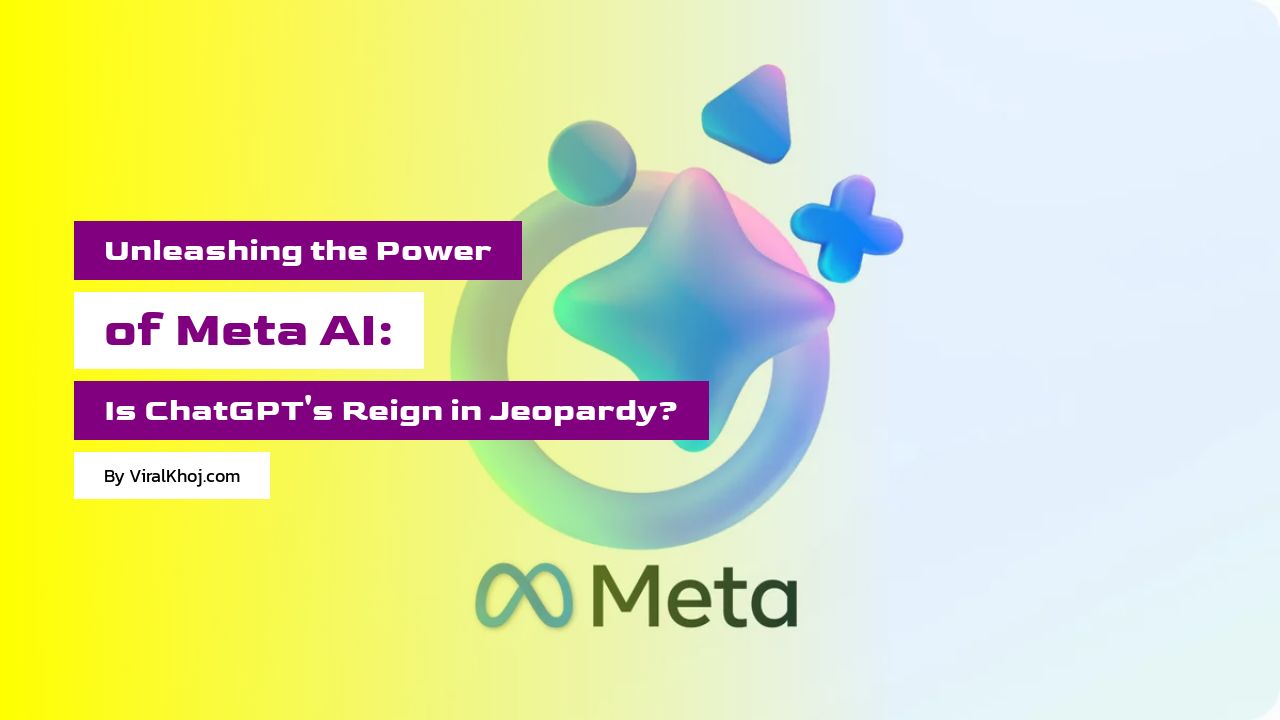Meta AI Assistant: Can it Challenge ChatGPT's Dominance?

Meta AI Assistant: Can it Challenge ChatGPT's Dominance?
In the ever-evolving world of artificial intelligence, one company aims to disrupt the landscape once again. Meta, the company behind popular platforms like Facebook, Instagram, and WhatsApp, has unveiled its latest creation - Meta AI Assistant. This Large Language Model (LLM) is set to compete with the likes of Google Bard, Microsoft Bing AI, and OpenAI's ChatGPT. But can it truly challenge the dominance of ChatGPT?
Meta AI Assistant's goal, according to Meta CEO Mark Zuckerberg, is to become "The most intelligent AI assistant that people can freely use across the world." With ambitions like that, it's clear that Meta is not afraid to take on the big players in the AI assistant market.
However, when we look at Meta's track record, we see a similar pattern. Threads, a rival to Twitter, was launched with much fanfare and gained over 100 million users in just five days. But over time, the hype faded, and Threads struggled to retain its user base. In contrast, Twitter/X continued to thrive with over 100 million daily active users spending an average of 30.9 minutes per day on the app.
So, how does Meta AI Assistant plan to fare against the current AI giant, ChatGPT? The answer lies in its strategy. Meta AI Assistant will be integrated into Facebook, Instagram, WhatsApp, and Messenger, reaching billions of users. This prime real estate gives Meta AI Assistant a significant advantage in terms of visibility and accessibility.
But it's not just marketing that will determine Meta AI's success. It boasts the backing of Meta's latest Llama 3 model, an 8B and 70B parameter state-of-the-art LLM capable of chatbot-like interaction, image/animation generation, and seamless search integration. This powerful technology sets Meta AI Assistant apart and gives it a fighting chance against ChatGPT.
Despite Meta AI Assistant's potential, it still faces an uphill battle. ChatGPT currently enjoys an estimated 1.8 billion visits per month through its website alone. It has also made its mark in various products and platforms, including smart glasses and earbuds. To surpass ChatGPT's popularity and dominance, Meta AI Assistant will need to offer a truly exceptional user experience.
Threads' initial surge in users may have been driven by the novelty of a new social media platform. However, it failed to retain users in the long run. Meta AI Assistant could face a similar fate, relying on its association with Facebook, WhatsApp, and Instagram to attract users. While it may have a strong start, sustaining interest and engagement will be crucial for its success.
In conclusion, Meta AI Assistant has the potential to challenge ChatGPT's dominance in the AI assistant market. Its integration across multiple platforms and the power of Meta's Llama 3 model provide a solid foundation. However, it must offer a compelling user experience and find ways to differentiate itself from ChatGPT to truly succeed. Only time will tell if Meta AI Assistant can live up to its ambitious goals and revolutionize the AI assistant landscape.
Sources: Threads, Meta AI Assistant, Meta Llama 3 Model


The Ethical Implications of AI in Warfare: A Call for Responsibility
27 Aug 2024
Reddit Blocks Bing Search Engine Access: Impact on Other Search Engines
28 Jul 2024
Google's Privacy Shift: Implications for Chrome Users and Regulators
28 Jul 2024
Unlocking Infinite Context Lengths for Large Language Models: The EM-LLM Breakthrough
17 Jul 2024
Why EV and AI’s energy-saving pitch in India is a clickbait
17 Jul 2024